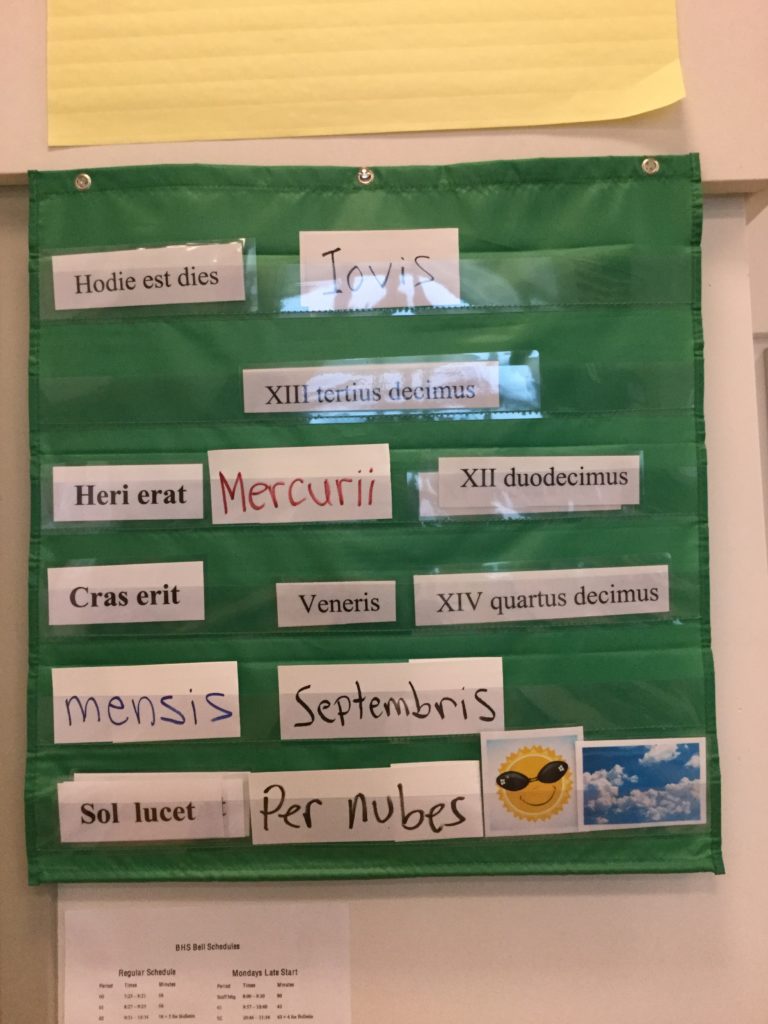Every day I begin class with the calendar. I am taking my lead from teachers of younger grades (pre-school through 4th grade, from what I have seen). The purpose of starting class this way is manifold: basic skills around numbers, days, sequencing, spelling, pronunciation, etc–and most of all, community building. When you begin with the calendar, we are acknowledging that we are all here together now. Talking about the calendar also encourages the class to celebrate and acknowledge milestones (birthdays), events (sporting events and performances, successes, etc). There are questions about HOW to implement a calendar routine, and I want to share my routine here. This is my calendar.

I begin with what is called a “pocket chart,” that is, a poster-sized piece of fabric with clear pockets. You can get these on Amazon or at a teacher store for under $15. Mine is about 17″ width by 28″ height. It is one of the smaller ones available, and is about as small as you can go for the date and weather. As for the content, I have printed and laminated the words and numbers. I also have a pack of long cards, so I can write months, etc on the fly. I also printed out some stock images representing the different weather conditions. The chart is hanging on Command Product hooks, which attach to the wall but are removable.
The routine
First I ring my chime, and then greet the class (“Salvete Omnes–Salve Magister”. After our poem of unity recital, we do this (in call and response format, at least for the first quarter):
hodie est
hodie est
dies lunae
dies lunae,
septimus,
septimus,
mensis octobris
mensis octobris
anno bis millessimo
anno bis millissimo
undevicesimo
undevicesimo
magister caelum spectat (I look out the window)
caelum est nebulosum, et fortasse pluet
caelum est nebulosum, et fortasse pluet
(after the first month or two, we say it in unison)
Uning the calendar this way is a great way to “officially” begin class and get all your students on the same page, and speaking and thinking in Latin. You can immediately move on to whatever you have planned, or you can use the calendar to springboard into any of the following activities for as much or little time as works for you and your students:
*recitation of all the days of the week
*discussion/comparison of recent weather, or weather in other parts of the world
*acknowledgement of birthdays, games, performances, etc.
*”hodie in historia” (making use of a “today in history” web page, briefly describe something relevant/interesting (event, invention, famous birthday) that happened on that day.
All this can segue into a Write and Discuss. Even if you have nothing in particular planned, this could take the entire period, and result in a comprehensible, relevant, language-rich environment.
